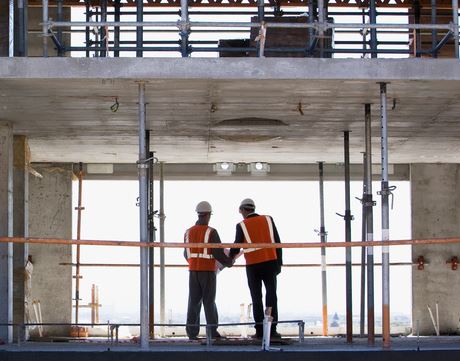Strong investor demand means competition, which in turn means lack of product, delegates have heard at the PropertyEU Europe and Germany Outlook 2018. The only way out of the quandary is through more development, re-development and re-positioning of assets.
Germany is closing 2017 on a high, with transaction volumes poised to exceed the €55 bn mark and foreign investors from all over the world accounting for more than half of the capital being invested. Demand is fuelling competition for increasingly scarce assets.
'The main issue for 2018 is the limited availability of space,' said Matthias Leube, CEO, Germany, Colliers International. 'There is too little development going on.'
There are many positives to a booming market, but the other side of this shiny coin is lack of product. 'There is increasing evidence of corporates really struggling to find suitable space, and not just in the A locations,' said Axel Drwenski, head of research, Commerz Real.
'Lack of product is a real challenge, and it is limiting our ability to implement our strategy,’ said Chris Fritz, investment director at Orion Capital Managers. 'I think 2018 will be a continuation of 2016 and 2017, with a wall of capital chasing very little product at high prices.'
There is a pressing need to expand the available stock, said Anthony Shayle, managing director, head of real estate debt EMEA, UBS Asset Management: 'I think refurbishment will be a major trend in Germany. A lot of the existing stock has already fallen into early stage obsolescence and will become even more obsolete over the next 12 months.'
The Outlook event was held in Frankfurt on 28 November.
Go to the briefing presentation and video highlights
Development/re-redevelopment
Development and refurbishment are a key part of UBS’ strategy in Germany, but alternative lenders will have a bigger role to play in the expansion of the market, he added, as ‘many banks are not best equipped to take on development risk. The emergence of alternative lenders is an important development, because it will provide longer term stability to the market in case of a downturn.’
The supply side is struggling to respond to the high demand and low availability of space. There are reasons for the development pipeline not being what it should be, experts agreed. ‘Rental growth is already priced in, so there is not enough of a profit potential as an incentive for developers,’ Leube said.
The main issue, though, seems to be the shortage of construction companies and workers to do the building and redevelopment that is needed. ‘We do development and repositioning after a suitable risk assessment,’ said Markus Beran, head of origination international investors, Berlin Hyp AG. ‘But the big problem is a shortage of resources and workers, right across Germany.’
Frankfurt seems to be moving in the right direction, judging from the development pipeline and the number of cranes dotting the skyline. New developments are being snapped up long before they are completed.
'It is not just the big international banks that are coming, but many start-ups too,' said Olaf Atja Lemmingson, head of international business communities, Wirtschaftsfo¨rderung Frankfurt: 'Our new Tech Centre is a hive of activity, and we expect the proptech sector will become ever more important.'
Part of the attraction for companies, he added, is that the cost of living and renting in Frankfurt is half that of Paris or London.


































